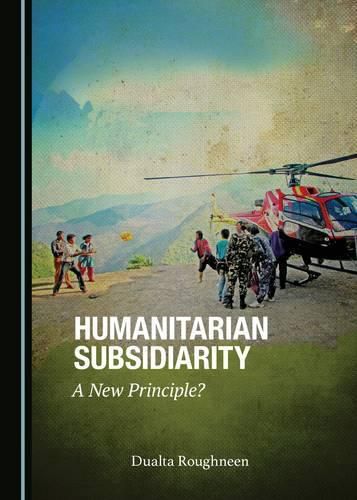Readings Newsletter
Become a Readings Member to make your shopping experience even easier.
Sign in or sign up for free!
You’re not far away from qualifying for FREE standard shipping within Australia
You’ve qualified for FREE standard shipping within Australia
The cart is loading…






Subsidiarity is not a new idea, having been discussed either implicitly or explicitly for centuries. From Aristotle to the International Criminal Court, subsidiarity has been considered a means of framing the interacting spheres of sovereignty and levels of responsibility between individuals and the social and political order. The Catholic Church and the European Union have put forward the two clearest definitions of subsidiarity, representing the social order in the former and the political order in the latter.This book explores the possibility of a new humanitarian principle: subsidiarity, which means recognising that, in humanitarian response, local populations can and should be best placed to make decisions and take action. It argues that the humanitarian system should be designed to support this in the first instance and only to take action and make decisions at a higher level when this can be justified by a humanitarian imperative and the exigencies of the context.Subsidiarity as a humanitarian principle offers the possibility of a decision making framework that puts disaster affected populations at the centre of humanitarian response.
$9.00 standard shipping within Australia
FREE standard shipping within Australia for orders over $100.00
Express & International shipping calculated at checkout
Subsidiarity is not a new idea, having been discussed either implicitly or explicitly for centuries. From Aristotle to the International Criminal Court, subsidiarity has been considered a means of framing the interacting spheres of sovereignty and levels of responsibility between individuals and the social and political order. The Catholic Church and the European Union have put forward the two clearest definitions of subsidiarity, representing the social order in the former and the political order in the latter.This book explores the possibility of a new humanitarian principle: subsidiarity, which means recognising that, in humanitarian response, local populations can and should be best placed to make decisions and take action. It argues that the humanitarian system should be designed to support this in the first instance and only to take action and make decisions at a higher level when this can be justified by a humanitarian imperative and the exigencies of the context.Subsidiarity as a humanitarian principle offers the possibility of a decision making framework that puts disaster affected populations at the centre of humanitarian response.